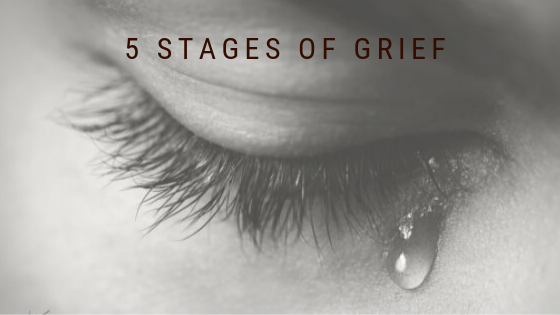The phases of mourning and grieving are all-inclusive, and individuals from varying backgrounds experience this all over the world. Bereavement happens due to the passing of a loved one, breakup, or a person’s own terminal sickness.
There are 5 stages of grief, first introduced in 1969 by Elisabeth Kübler-Ross in her famous book “On Death and Dying” which are as follows:
1. Denial
Denial is the main phase of sorrow. In this stage, the world seems good for nothing and overpowering. Life has no meaning. We become numb. We wonder how we can go on further and why we ought to go on. But denial and shock help us to adapt and make a doorway to survival. It let us speed up our emotions of sadness.
As you acknowledge the truth of the disaster and begin to question yourself, you’re unconsciously starting the recovery procedure. You are getting to be more grounded, and the denial is starting to blur. However, as you continue, every emotion you denied start to surface.
2. Anger
It’s basic for individuals to experience anger after the loss of someone. We’re attempting to adapt to another reality, and we are destined to encounter severe emotional distress. There’s plenty to process what anger might feel like; it permits us an emotional break. It’ll, in general, be the primary thing we feel when we begin to discharge feelings regarding the loss of loved one.
Remember the anger enables us to express feeling with less fear of dismissal or judgment.
3. Bargaining
When something terrible occurs, you may start making a deal with the God such as “Please God, make my better half healthy again, I’ll try to be the best spouse I can ever be.” It’s called bargaining. Thus, this phase is a false expectation. You may incorrectly let yourself believe that you can dodge the grief through a kind of agreement. It’s the point at which you persevere through the constant “what ifs” possibility. It is a more fragile line of defense to shield us from the unpleasant reality.
4. Depression
It depicts the void we feel when we are existing in reality and understand the loss of loved one. You might feel numb, withdraw from life, and don’t desire to get out of bed. The world seems too heavy to face. You don’t feel like speaking and encounter emotions of hopelessness. At this stage, you must rush to seek help.
5. Acceptance
Central to the book’s stages of grief is the idea that pain is a procedure that, in the long run, results in acceptance. Though the vast majority constantly miss, the excruciating feelings they feel soon after the loved one’s loss more likely in the end decrease. It very well may solace remember this. When we keep reminding ourselves about negative statements such as, “It will never end,” “I’m going insane,” etc. we’ll end up getting unnecessarily more awful. On the other hand, when we consider it normal, which won’t last eternally, it’ll be simpler to respect our loss without much pressure. So, it’s vital not to hasten the pain.
For more information, call us at: 03340277777 / 8017770323 or email us at: enquiry@newwpsite.tribecacare.com. Visit our page at: www.tribecacare.com.

